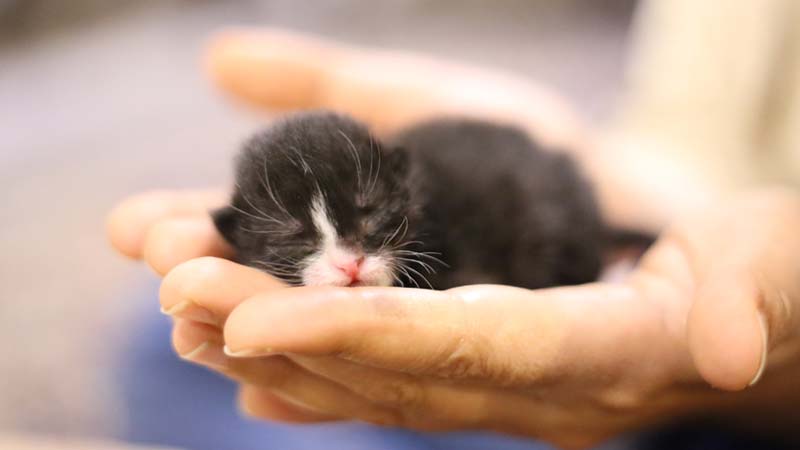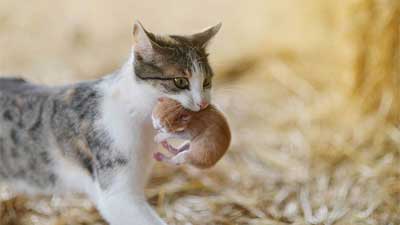Your Kitten's Journey: Growing Up in the First Year

Photo by Sahand Babali on Unsplash
Welcoming a kitten into your life marks the beginning of a fascinating and rewarding journey. From their earliest moments to their first steps into adulthood, their growth and development are nothing short of remarkable.
From 6 months to 1 year, they go through some pretty big changes, even if the major milestones might have passed by the time they hit six months old, there's still a lot of growth and learning ahead. Your kitten is stepping into a more confident phase, eager to explore their world and engage in playful interactions. It's a delightful time when they become more comfortable with their environment, both with other pets and their human companions.
Here's a timeline summarizing key developmental stages and milestones in a kitten's first year:
First Weeks: New Beginnings
Birth to 1 Month
At birth, kittens weigh around 100-120 grams. Their daily weight gain averages 10-20 grams. Within the first few days, the umbilical cord naturally falls off, and their tiny claws remain exposed and unretracted.
This phase is a tender period where kittens depend entirely on their mother for warmth, nourishment, and stimulation. Their eyes are closed, and they're unable to eliminate waste without their mother's help.
Transitioning to Awareness
1-2 Months: Baby Steps
Around one to two months, kittens slowly open their eyes, a transformative moment as they begin to explore the world visually. Their teeth start to form, and they learn to retract and extend their claws. This period is crucial for socialization.
Kitten owners play a pivotal role in this phase, engaging in gentle play, providing toys for stimulation, and allowing them to adapt to various environments. Socialization lays the foundation for their interactions with humans and other pets.
Early Development and Weaning
2-6 Months: Embracing Independence
Between two to six months, kittens learn to regulate their body temperature and gradually wean off milk onto solid foods. It's essential to facilitate this transition gradually to ease them into their new diet.
By six months, kittens are typically fully weaned and have grown their baby teeth. This phase marks the onset of training and regular feeding schedules. Positive reinforcement and consistent interactions shape their social skills and behavior.
Adolescence and Growth
Month 6: Growing Pains and Spaying or Neutering
At around six months, your kitten might seem like a mini adult, but they're still on the way to reaching their full size. They're gaining about a pound a month, so expect them to weigh around 6 pounds. They might look a bit gangly with long legs and a lanky body, but that's just part of the growing-up process, like a teenager hitting a growth spurt.
This is the time to think about spaying or neutering. Even if they're not fully grown, they might reach sexual maturity. To avoid issues like marking territory or heat cycles, getting them spayed or neutered by the vet is key. Sometimes, they might still have baby teeth, which the vet might suggest removing during this procedure.
Month 7: The Sleepy Shift
Your little furball might start sleeping more during the day, almost like a full-grown cat. Giving them a cozy spot to snooze in is a great idea. When they're awake, they're more confident and coordinated, exploring and playing with a newfound sense of assurance. This is when all your bonding time starts showing its magic, and you might catch them snuggling up voluntarily.
Month 8: Confidence Booster
Around eight months, they're really feeling themselves! They might start playing more with other pets in the house, which is great, but keeping an eye on them, especially around bigger animals, is important.
They're also testing boundaries, maybe trying some sneaky moves like counter surfing or playful pushing of stuff around. It's all part of their learning curve, so consistent training and positive reinforcement are super important here. They're not big fans of forceful methods, so treats and praise work like a charm.
Month 9: Teeth and Behavior
By nine months, your kitten is almost all grown up, and those baby teeth should be gone. Though teething should be over, they might still find chewing on things amusing. Keeping an eye on their biting habits is crucial, ensuring they're not getting too aggressive with people or other pets. If they start getting nippy, gentle training is the way to go.
Month 10: Time for Grown-Up Food
It's around this time that they might start transitioning to adult cat food. Slow and steady wins the race here—mixing their kitten food with the new adult food gradually is the way to avoid any tummy troubles. Choosing quality food is key; your vet can help pick one that's meat-based and meets their nutritional needs.
Month 11: Almost There
By the eleventh month, they're nearly adult cats. They've hit some important milestones—reached maturity, shifted to adult food, completed their vaccinations, and learned a lot through training. Mentally, they're getting there, but physically, they're looking pretty much like adult cats.
Month 12: Welcome to Adulthood
Congratulations! They've officially reached the one-year mark, and they're considered adults now. Most cats are fully grown by this time, so it's all about mental growth from here on out. They're always learning and developing habits, so your role in guiding them with love and positive methods remains crucial.
This first year is a whirlwind of growth, learning, and development for kittens. Monitoring their progress, ensuring proper nutrition, socialization, healthcare, and positive reinforcement are crucial elements in nurturing a healthy and well-adjusted adult cat.
You May Also Like
 Tiny Cat Breeds12 Tiny Cat Breeds That Don't Weigh More Than 11 Pounds
Tiny Cat Breeds12 Tiny Cat Breeds That Don't Weigh More Than 11 Pounds Tips and TricksHow Do I Stop My Cat From Relocating (Moving) Kittens?
Tips and TricksHow Do I Stop My Cat From Relocating (Moving) Kittens? Cat Nutrition & FoodKitten Food vs. Cat Food: What's the Difference?
Cat Nutrition & FoodKitten Food vs. Cat Food: What's the Difference? Cat Nutrition & FoodKitten Food vs. Senior Cat Food: What You Need to Know!
Cat Nutrition & FoodKitten Food vs. Senior Cat Food: What You Need to Know! Breed ReviewsThese 10 Newest Cat Breeds Will Make Your Purr-fect Match
Breed ReviewsThese 10 Newest Cat Breeds Will Make Your Purr-fect Match Cat BehaviorCan You Rename An Older Cat?
Cat BehaviorCan You Rename An Older Cat?